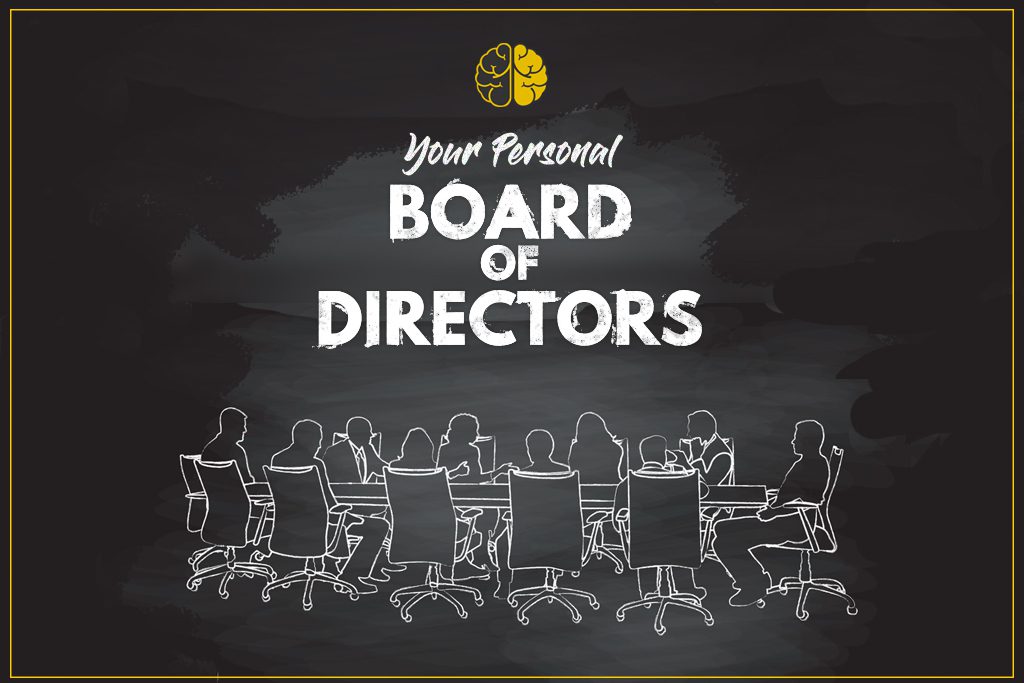When you’re on shifting sand, you want to spread your base.
In late 2009, I was tempted to turn my gym into a “collective”—a co-operative in which every member would own a share, elect a board of directors and pay me to be the CEO.
I thought the board could share profits but might also bear some responsibility for guaranteeing the CEO’s income. Or maybe they’d pay me for the shares. Or maybe, if they owned a piece of my business, they’d never leave.
The truth? I was just scared. Not scared of failure but scared that failure would be all my fault.
I didn’t want differing opinions or new ideas. I just wanted to share the blame!
In an owner-operator gym business, you don’t want a board of directors.
The potential positives are actually negatives: You won’t share responsibility for running your business at all, your stress will go way up, and you’ll actually have a tougher time making decisions.
Think about it: Do you really want your loudest clients to have a vote in how you run your gym?
What you need is a personal board of directors.
Your Board Members
At Two-Brain Business, we teach entrepreneurs to evolve in the “Six Fs”: in their fitness, their finances, their future, their faith, their family and their freedom.
The people closest to you should support you—but they should also challenge you.
They should illuminate the path to greatness. They should push you and pull you to get there faster.
If you want to improve your life as quickly as possible, you need people who will sometimes be your challengers, often be your partners and always have your back.
Maybe you already have these people, and you just need to focus on them more. So consider them your personal board of directors. They are:
Your life partner—your spouse or significant other—who represents your family.
Your fitness coach, who represents your health.
Your business mentor, who represents your finances, freedom and future.
Your spiritual guide—your pastor, priest or meditation guide—who represents your faith.
Your best friend, who represents your conscience. This person knows your whole story and will help you balance the rest. That’s important. As much as we value the pursuit of excellence in each of the Six F’s individually, there will never be perfect harmony between all six. Your best friend will give you the caring but objective perspective you need.
It’s easy to identify exactly who these people are. If you have gaps on your personal board of directors, fill those gaps first.
How to Use the Board
As soon as you have your board together, here are the next steps:
Prioritize them.
Listen to board members before everyone else. The board’s power comes from its ability to filter: to lift up the most important things in your life and hold back the noise.
For example, when I get a nasty email response, I read it out loud to my wife. Her skin is thicker than mine, and she helps me get my perspective back. Then I’m not distracted while I’m trying to spend time with my kids.
When I’m not certain which step to take in my business, I call my mentor and present my options. His objectivity helps me choose the path and stay on it until the end.
Maintain contact.
Make appointments with board members. Work them into your daily, weekly or monthly schedule. Don’t try to “fit them in” like everyone else—your schedule and head will fill with noise, and you’ll lose focus in the overwhelm. Chart your course instead of looking for a lighthouse when you’re approaching the rocks.
Ask them how you’re doing.
Be ready to hear the truth.
Ask them how you can improve.
“How can I be a better husband?” is a scary question. Be sure you’re ready to hear the response and act on it.
“How can I own a better business?” is another scary one (it took me three years to ask it of my first business mentor).
“How can I lose the weight that makes me feel unhappy?” is really tough for most people.
“How can I serve more?” “How can I be happier?” and “How can I find peace?” are possibly the hardest of all.
But here’s the thing: board members already know the answers. You don’t have to guess. You don’t have to make mistakes. You don’t have to try stuff, fail and then attempt to repair the damage. You have the most qualified people in the world sitting at your table. All you have to do is ask.
When I’m faced with a problem in my business, my first question is this: “Who has already solved this problem?” If there are several people, I ask, “Who has solved this problem better than anyone else in the world?”
When I realized I could take the same approach in the other areas of my life—my Six Fs—I started asking for help. I put my ego aside and made massive growth.
The Board: Your Bedrock
You can maintain around 150 personal relationships. I suggest that these five—life partner, fitness coach, business mentor, spiritual guide, best friend—matter more than almost all of the rest put together.
Identify these people, focus on them and grow with them.

